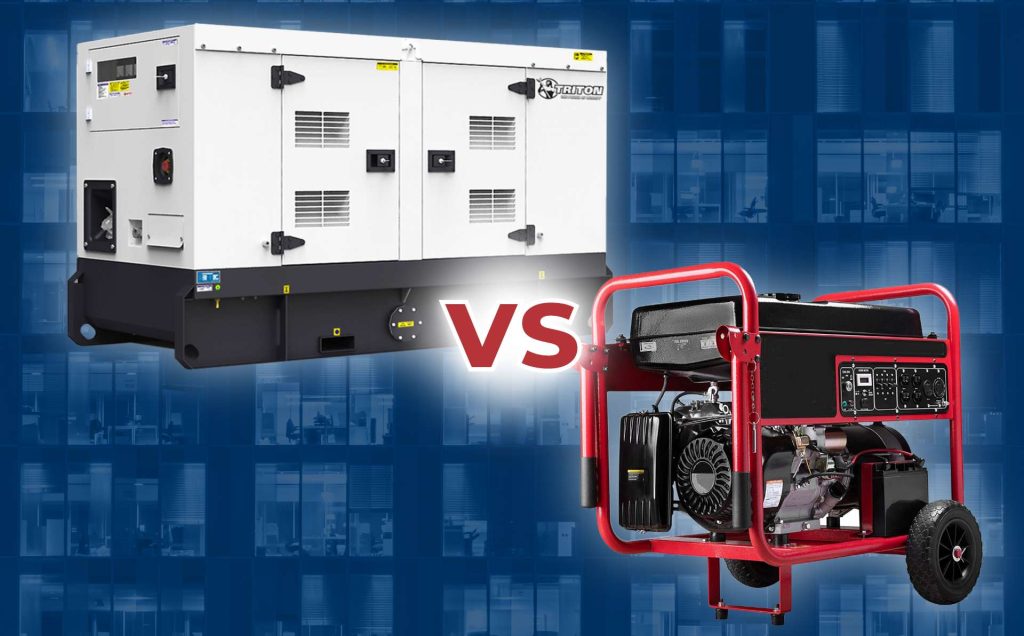Introduction
In today's fast-paced and highly competitive business world, having a reliable source of power is crucial for small businesses to operate smoothly and efficiently. Power outages can occur unexpectedly due to various reasons such as natural disasters, grid failures, or maintenance issues. To ensure continuous operations and prevent losses, small businesses can benefit greatly from investing in a diesel generator. In this comprehensive guide, we will explore the importance of diesel generators for small businesses, their advantages, considerations for choosing the right generator, maintenance tips, and cost implications.
Importance of Diesel Generators for Small Businesses
Small businesses rely heavily on electricity to power their operations, from lighting and heating to running essential equipment and machinery. A power outage can disrupt business activities, leading to downtime, loss of revenue, and damage to equipment. For small businesses that cannot afford to be without power for extended periods, having a backup power source is crucial.
Diesel generators are a popular choice for small businesses due to their reliability, efficiency, and cost-effectiveness. Unlike gasoline generators, diesel generators are more fuel-efficient and offer better performance, making them ideal for continuous use over extended periods. Diesel fuel is also more stable and safer to store, making it a preferred choice for businesses looking for a reliable backup power solution.
Advantages of Diesel Generators for Small Businesses
1. Reliability: Diesel generators are known for their reliability and durability. They can provide backup power during extended outages without compromising performance or efficiency.
2. Fuel Efficiency: Diesel engines are more fuel-efficient compared to gasoline engines, allowing small businesses to save on fuel costs in the long run.
3. Low Maintenance: Diesel generators require less maintenance compared to other types of generators, reducing downtime and maintenance costs for small businesses.
4. Longevity: Diesel generators have a longer lifespan than gasoline generators, making them a cost-effective investment for small businesses looking for a reliable backup power solution.
5. Quick Start-Up: Diesel generators can start quickly and provide power within seconds of a power outage, ensuring minimal disruption to business operations.
Considerations for Choosing the Right Diesel Generator
When selecting a diesel generator for a small business, it is essential to consider the following factors to ensure you choose the right generator that meets your specific requirements:
1. Power Output: Determine the power requirements of your business to select a generator with the appropriate power output capacity to support your operations.
2. Size and Portability: Consider the size and portability of the generator to ensure it fits the available space and can be easily transported if needed.
3. Fuel Efficiency: Look for a diesel generator that offers optimal fuel efficiency to reduce operating costs and minimize fuel consumption.
4. Noise Level: Consider the noise level of the generator to ensure it complies with noise regulations and does not disturb employees or neighboring businesses.
5. 500kw diesel generator for oil and gas facilities : Invest in a generator with an automatic transfer switch to enable seamless transition to backup power during outages without manual intervention.
Maintenance Tips for Diesel Generators
Proper maintenance is essential to ensure the reliable performance of a diesel generator for small businesses. Follow these maintenance tips to keep your generator in top condition:
1. Regular Inspections: Conduct regular inspections of the generator to check for any signs of wear and tear, leaks, or damage that may affect its performance.
2. Fuel Quality: Use high-quality diesel fuel and ensure it is stored properly to prevent contamination and ensure optimal engine performance.
3. Oil Changes: Follow the manufacturer's guidelines for oil changes and use the recommended oil type to keep the engine well-lubricated.
4. Battery Maintenance: Check the battery regularly for corrosion, leaks, and proper voltage levels to ensure the generator starts efficiently during power outages.
5. Cooling System: Keep the cooling system clean and free of debris to prevent overheating and ensure the engine operates at optimal temperatures.
Cost Implications of Diesel Generators for Small Businesses
While diesel generators offer numerous benefits for small businesses, it is essential to consider the cost implications of purchasing, installing, and maintaining a generator. The upfront cost of a diesel generator can vary depending on the size, power output, and features of the generator. In addition to the initial investment, small businesses should also budget for ongoing fuel costs, maintenance expenses, and any necessary repairs or upgrades.

Despite the initial costs, investing in a diesel generator can provide long-term cost savings by preventing downtime, reducing losses due to power outages, and ensuring continuous operations. Small businesses can also explore financing options, leasing arrangements, or government incentives to offset the upfront costs of a generator and make it more affordable.
Conclusion
In conclusion, diesel generators play a vital role in providing backup power for small businesses, ensuring continuity of operations and minimizing losses during power outages. With their reliability, efficiency, and cost-effectiveness, diesel generators are a valuable investment for small businesses looking to safeguard their operations and maintain productivity. By considering the advantages, choosing the right generator, following maintenance tips, and understanding the cost implications, small businesses can make informed decisions when investing in a diesel generator as a backup power solution.
